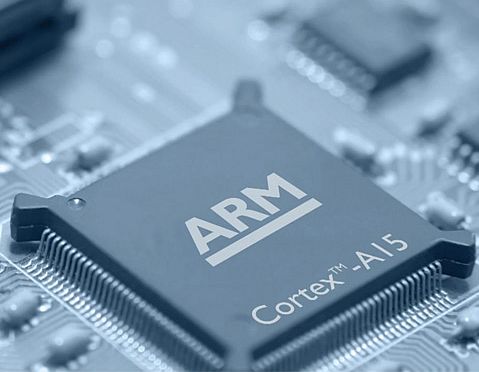Oracle Isn’t Cosying Up To ARM Servers Just Yet

Oracle hasn’t yet announced plans for ARM-based servers, but why not?
Oracle has not yet announced plans to build ARM servers and it appears SPARC and Intel-based machines are its core focus for now.
Rivals such as HP, with Project Moonshot, and Dell, with its Copper servers, have both made major announcements in the ARM server market.
But Oracle has not revealed plans to join them, even though it was once rumoured to be courting ARM in preparation for an acquisition. Larry Ellison’s firm was also thought to be after Calxeda, which has also recently shown off ARM-based servers running Linux, in 2011.
You got SPARC
Intel and SPARC remain the processors of choice, said John Abel, senior director for Oracle’s engineered systems division in EMEA. “Everything we are doing is supporting together, engineered together,” he told TechWeekEurope.
“We are less passionate about architecture outside of SPARC and Intel… the importance is that togetherness across the stack, up the stack and horizontal across the stack.”
Oracle has not confirmed or denied whether ARM-based servers are in the pipeline long term.
 Oracle’s attitude to ARM has not surprised many analysts, who see the ARM-based server market as a small one. As such servers are ideal for the hyperscale market, where massive Internet companies like Facebook and Amazon operate, the potential for revenue is not great. Furthermore, Oracle’s customers are not in the hyperscale market, according to Gartner analyst Rakesh Kumar.
Oracle’s attitude to ARM has not surprised many analysts, who see the ARM-based server market as a small one. As such servers are ideal for the hyperscale market, where massive Internet companies like Facebook and Amazon operate, the potential for revenue is not great. Furthermore, Oracle’s customers are not in the hyperscale market, according to Gartner analyst Rakesh Kumar.
“The hyperscale segment is very specific and I’m not sure oracle want to get into that,” Kumar told TechWeekEurope. “In many ways Oracle is being smart about this… Project Moonshot, whilst innovative and potentially the right thing to do in the long term, won’t be a big revenue generator.”
Carl Claunch, vice president and distinguished analyst at Gartner, said ARM servers were not exactly complementary to Oracle software.
“Oracle’s interests seem focused on ways they can leverage and combine Oracle technologies in several layers of an IT stack to add value and differentiate – solutions such as Exadata – rather than in driving revenues in categories such as servers independently,” Claunch said.
“ARM based systems are not currently a factor for applications or middleware products made by Oracle, they do not port their products to run on ARM architecture hardware, and correspondingly this does not fit into the leveraged, engineered to purpose strategy we believe they are pursuing. In this context, the lack of ARM systems on the Oracle short term roadmap is understandable.”
Oracle’s chief focus is on performance right now, rather than the power efficiency sell that ARM servers can boast. Instead, Oracle will keep going with x86-based architecture because it has an emphasis on power and because Intel is likely to remain the dominant processor player in the server industry, Claunch said.
“At maximum we believe [ARM] servers suit only a portion of the tasks and software in the market, in the range of 10-15 percent, thus this is not going to usurp Intel as the dominant processor architecture. It will take a bit of market opportunity away, but Intel has been making some modest inroads in the range below PCs, netbooks and lower, that could gain a bit of the volume that ARM licensees currently enjoy,” he added.
UPDATE: An Oracle spokesperson got in touch with TechWeekEurope following the publication of the article to clarify that Oracle does have a relationship with ARM, but not currently in the server manufacturing space, as the story already made clear. “Oracle absolutely does work with ARM. As such ARM is very much on the Oracle roadmap. For example, Oracle’s support of Java for ARM is a relationship the company values highly,” the spokesperson said.
Think you know about processors? Try our quiz!